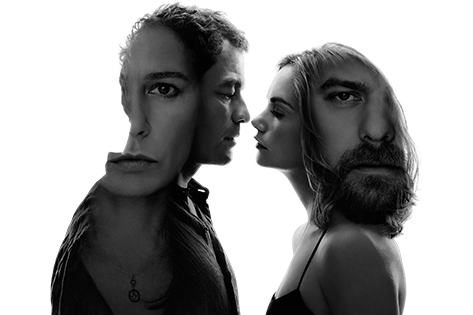How would you define truth? Let’s say you and I were at a bar when a fight broke out. It’s a crowded bar; plenty of people are aroused by the scuffle and shove past one another, hands on the shoulders of strangers to try to get a better look. The dim lighting muddies your view of the scene—the couple of beers you’ve had don’t help much either. Even so, you’re sure you get a clear view of a man in a red polo purposefully stabbing a lanky man with glasses. I, on the other hand, see the scene differently, and from my vantage point on the other side of the bar, it looks like they were both struggling over control of the knife and the lanky man slipped and stabbed himself. Both of us are convinced we saw the scene correctly, but who’s really correct?
Showtime’s The Affair explores the discrepancies between subjective truths. The premise of the show is simple. A man comes into a sleepy New England town in the hopes of getting work done on his book and falls for a waitress at a local diner. Their passionate love affair is only tempered by the fact that they’re both already married. As the show unfolds, their sordid pasts are revealed along with the knowledge that they might be complicit in a major crime.
What sets this show apart from a standard beach read is the fact that the story is told from both the man’s perspective and the woman’s. Their life experiences lead them to interpret scenes in wholly different manners. While the man sees this waitress as a confident sexpot in a crowd, she’s hyper-aware of her own insecurities and thinks of herself in a more demure light. It’s like watching one scene with Superman and the next with Clark Kent. Each character’s perspective provides one of a multitude of truths with the understanding that there may not be a way to obtain an ultimate objectivity.
This unreliable storytelling technique has absolutely gripped me. I want more. I want stories to have multiple compelling angles that I can debate, discuss, and agonize over with my friends. You can sit down and watch a Disney movie with a friend, and when it’s over, you won’t have much more to talk about other than debating which musical number was your favorite. Your enjoyment doesn’t extend far beyond those 90 minutes because there’s a straightforward, linear sequence of events at play. You know who you’re supposed to root for and against.
The ambiguity inherent in The Affair lends itself to extending the show beyond the scope of an hour each week. You can have heated debates about gender biases that apply to everyday life. You can discuss how people from differing socioeconomic backgrounds see different points of conflict. The format encourages you to empathize and accept viewpoints that counter your own, which ultimately lends itself to a richer viewing experience.
I would categorize shows like The Affair as perspectivism television. Perspectivism is a philosophy of Nietzsche’s, which purports that all knowledge is seen through a biased lens. There is no such thing as objective truth because truth is relative to each viewer.
This is the kind of material I’m looking for in future TV shows, movies, and books. I want the ambiguity. I want to change my mind about a particular plot point until I’m about to cry with frustration.
I don’t think I’m alone in this. The surging popularity of true crime series like Serial and Making a Murderer have sent the Internet buzzing over the past year, in large part, I believe, because no one quite knows what happened. The people involved, the methods, and the motivations are all up for debate. A 2014 article from Thought Catalog ponders why it is that Serial became such a hit. Writer Annie Johnson speculates that human beings are driven toward stories they don’t understand, driven to trying to solve them like a puzzle. You’re presented with multiple possible truths, and it’s up to the reader to determine whose tale to believe, similar to the format for The Affair.
Could this kind of storytelling work for other types of entertainment? What if the Harry Potter series had been told from both Harry’s and Snape’s points of view? Would the series have been enriched by showing Snape in a more sympathetic light (and Harry a more damning one) throughout the series? How might our view of the Capitol have changed if we got Effie’s take on the districts?
In a pop culture world of remakes and sequels, there’s one simple way to produce original content and engaging debate: by muddying the truth. You don’t need to add a series of preposterous twists to create riveting content (I’m looking at you Once Upon a Time and Grey’s Anatomy). All you need to do is complicate the perspective and let the audience do the rest.
Header image via Facebook


